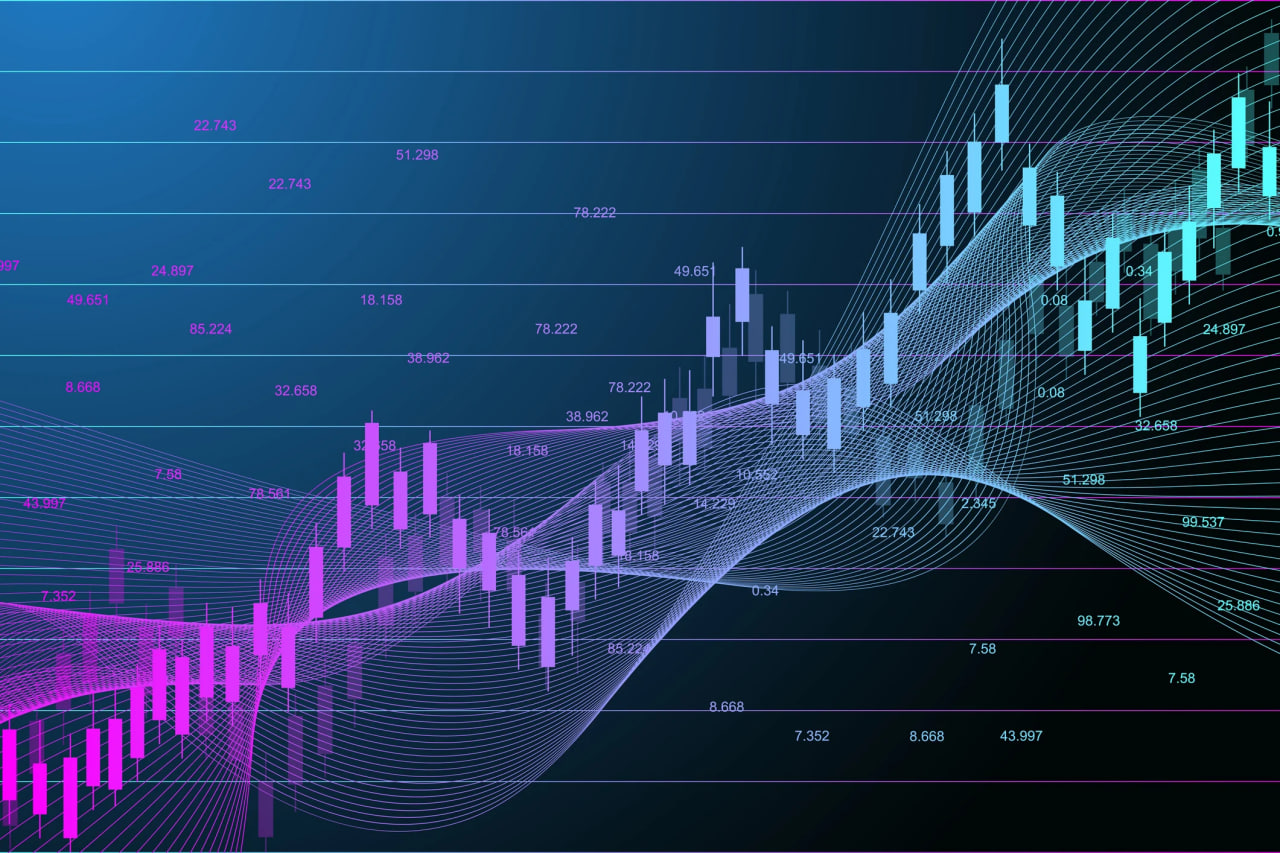Riding the Rollercoaster: Mastering the EUR/GBP Exchange Rate
Meta Description: Navigate the volatile EUR/GBP exchange rate with expert insights, practical strategies, and up-to-date analysis. Learn to predict market trends and optimize your currency trades for maximum returns. #EURGBP #forex #currencytrading #investing #exchange rate
Wow, what a wild ride the EUR/GBP exchange rate has been lately! A 0.5% drop in a single day? That's enough to make even the most seasoned trader jump! But don't worry, you're not alone. Thousands, nay, millions are grappling with understanding and, more importantly, profiting from this dynamic pair. This isn't just some dry economic data; this is your financial future we're talking about. We're diving deep into the fascinating world of EUR/GBP, unraveling its intricacies, and arming you with the knowledge to confidently navigate its ups and downs. Forget vague predictions and get ready for actionable insights based on years of experience in the forex market. This isn't your grandpappy's finance guide – we’re talking real-world strategies, proven techniques, and a healthy dose of plain English so you can finally grasp this often-confusing market. We'll cover everything from fundamental analysis and technical indicators to risk management and effective trading strategies. By the time you finish reading, you'll be better equipped to understand the forces shaping EUR/GBP and make informed decisions to bolster your portfolio. Buckle up, because this is going to be a thrilling journey! This isn't just about numbers on a screen; it's about making smart choices that can directly impact your financial well-being. Let's get started!
Understanding the EUR/GBP Exchange Rate: A Deep Dive
The Euro (EUR) against the British Pound (GBP) – the EUR/GBP pair – is a major forex currency pair reflective of the economic health and relative strength of the Eurozone and the United Kingdom. It’s a highly liquid and actively traded pair, making it susceptible to significant price fluctuations. Think of it as a constant tug-of-war between two economic giants.
Several factors influence the EUR/GBP exchange rate. Let's break them down:
-
Economic Data: GDP growth, inflation rates, unemployment figures – these are the bread and butter of fundamental analysis. A strong Eurozone economy relative to the UK would typically push the EUR/GBP rate higher. Conversely, a weak Eurozone or a booming UK economy could see the pound strengthening.
-
Central Bank Policies: The European Central Bank (ECB) and the Bank of England (BoE) wield immense power. Interest rate hikes, quantitative easing (QE), and other monetary policy decisions significantly impact currency values. For instance, if the ECB raises rates more aggressively than the BoE, the EUR might appreciate.
-
Political Events: Brexit, anyone? Geopolitical events and political uncertainty can create significant market volatility. Major political shifts in either the UK or the Eurozone can send shockwaves through the EUR/GBP pair.
-
Market Sentiment: Investor confidence and market sentiment play a crucial role. Periods of risk aversion can see investors flock to safer assets, potentially impacting the EUR/GBP exchange rate.
-
Technical Analysis: Using charts, indicators (like RSI, MACD, moving averages), and patterns, traders can identify potential price movements. This is more short-term focused than fundamental analysis. Think of it as reading the tea leaves of the market.
Example Scenario: Let’s say the UK unexpectedly announces weaker-than-expected inflation figures. This could lead to speculation that the BoE might delay interest rate hikes, potentially weakening the GBP. Simultaneously, positive Eurozone economic data might strengthen the EUR. The combined effect could result in a significant rise in the EUR/GBP exchange rate.
Trading the EUR/GBP: Strategies and Risk Management
Trading the EUR/GBP, like any forex pair, involves risk. It's crucial to approach it with a well-defined trading plan. This includes:
1. Defining your goals: What are you hoping to achieve? Set realistic, achievable targets and understand your risk tolerance.
2. Developing a trading strategy: This could involve fundamental analysis, technical analysis, or a combination of both. Don't just jump in blindly!
3. Risk management: This is paramount. Never risk more than you can afford to lose. Use stop-loss orders to limit potential losses. Diversify your portfolio to mitigate risk.
4. Keeping up-to-date: Stay informed about economic data releases, central bank announcements, and geopolitical events. The forex market is dynamic; staying informed is key.
5. Emotional discipline: Panic selling or impulsive trading can be detrimental. Stick to your strategy and avoid emotional decision-making.
| Strategy Type | Description | Pros | Cons |
|---|---|---|---|
| Fundamental Analysis | Analyzing economic indicators and news | Long-term perspective, potential for significant gains | Requires in-depth knowledge, slower to react to market changes |
| Technical Analysis | Using charts and indicators | Can identify short-term trends, quick to react to market changes | Can generate false signals, relies on historical data |
| Swing Trading | Holding positions for several days or weeks | Captures intermediate-term trends | Requires patience, higher transaction costs |
| Day Trading | Holding positions for only a few hours or minutes | High potential for quick profits | Requires intense focus, high risk |
EUR/GBP: A Historical Perspective
The EUR/GBP exchange rate has fluctuated significantly over the years, reflecting the changing economic fortunes of the UK and the Eurozone. The aftermath of the 2008 financial crisis, the Brexit referendum, and the COVID-19 pandemic have all had significant impacts on the pair. Understanding this historical context can provide valuable insights into potential future movements. Remember to always do your own research and consult with a financial professional before making any investment decisions.
Frequently Asked Questions (FAQs)
Q1: What are the best indicators for trading EUR/GBP?
A1: There are many, and no single “best” indicator. Popular choices include moving averages (e.g., 20-day, 50-day), RSI (Relative Strength Index), MACD (Moving Average Convergence Divergence), and Fibonacci retracements. The effectiveness of an indicator depends heavily on the trading strategy and market conditions.
Q2: How can I reduce my risk when trading EUR/GBP?
A2: Employ stop-loss orders to limit potential losses, diversify your portfolio, and never risk more than you can afford to lose. Proper risk management is crucial for long-term success.
Q3: What are the major economic events that impact EUR/GBP?
A3: Key events include interest rate decisions from the ECB and BoE, GDP releases for the Eurozone and UK, inflation data, and unemployment figures. Major political events can also have a significant impact.
Q4: Is EUR/GBP a good currency pair for beginners?
A4: While it’s a highly liquid and commonly traded pair, it’s not necessarily the best for beginners. The volatility can be intimidating. Starting with smaller trades and focusing on learning the fundamentals is recommended.
Q5: Where can I find reliable EUR/GBP exchange rate information?
A5: Reputable financial news websites, forex brokers, and central bank websites provide reliable information. Be wary of unreliable sources.
Q6: Do I need special software to trade EUR/GBP?
A6: While not strictly mandatory, trading platforms offered by forex brokers provide essential tools such as charting, order placement, and market analysis features. Some utilize sophisticated algorithmic trading systems, but these are more advanced.
Conclusion: Charting Your Course to Success
Navigating the EUR/GBP exchange rate requires knowledge, discipline, and a sound trading strategy. By understanding the fundamental and technical factors influencing this dynamic pair, employing effective risk management techniques, and consistently staying informed, you can significantly increase your chances of success in this exciting yet challenging market. Remember, consistent learning and adaptation are crucial for thriving in the ever-evolving world of forex trading. Now go forth and conquer!



